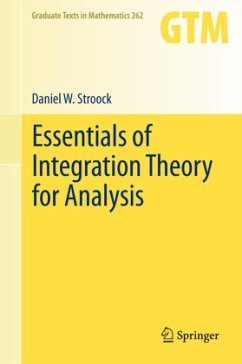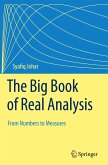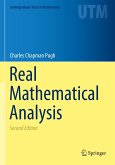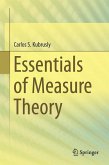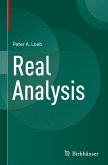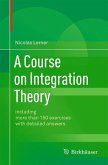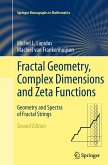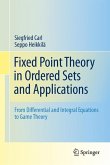'A Concise Introduction to the Theory of Integration' was once a best-selling Birkhäuser title which published 3 editions. This manuscript is a substantial revision of the material. Chapter one now includes a section about the rate of convergence of Riemann sums. The second chapter now covers both Lebesgue and Bernoulli measures, whose relation to one another is discussed. The third chapter now includes a proof of Lebesgue's differential theorem for all monotone functions. This is a beautiful topic which is not often covered. The treatment of surface measure and the divergence theorem in the fifth chapter has been improved. Loose ends from the discussion of the Euler-MacLauren in Chapter I are tied together in Chapter seven. Chapter eight has been expanded to include a proof of Carathéory's method for constructing measures; his result is applied to the construction of Hausdorff measures. The new material is complemented by the addition of several new problems based on that material.
From the reviews:
"This volume is an appropriate text for a one-semester graduate course in integration theory and is complemented by the addition of several problems related to the new material. ... This volume should become a new relevant reference for integration theory. It will help the reader to sharpen his/her sensitivity to issues of measure theory, and to renew his/hers expertise in integration theory. ... warmly recommends the book with confidence to anyone who is interested in understanding modern integration theory." (Vicentiu D. Radulescu, Zentralblatt MATH, Vol. 1228, 2012)
"This is a book in measure theory at the graduate level. ... The presentation is clear and concise, and detailed proofs are given. ... Each section also contains a long and useful list of exercises. ... The book is certainly well suited to the serious student or researcher in another field who wants to learn the topic. ... the book could be used by lecturers who want to illustrate a standard graduate course in measure theory by interesting examples from other areas of analysis." (Lars Olsen, Mathematical Reviews, Issue 2012 h)
"This volume is an appropriate text for a one-semester graduate course in integration theory and is complemented by the addition of several problems related to the new material. ... This volume should become a new relevant reference for integration theory. It will help the reader to sharpen his/her sensitivity to issues of measure theory, and to renew his/hers expertise in integration theory. ... warmly recommends the book with confidence to anyone who is interested in understanding modern integration theory." (Vicentiu D. Radulescu, Zentralblatt MATH, Vol. 1228, 2012)
"This is a book in measure theory at the graduate level. ... The presentation is clear and concise, and detailed proofs are given. ... Each section also contains a long and useful list of exercises. ... The book is certainly well suited to the serious student or researcher in another field who wants to learn the topic. ... the book could be used by lecturers who want to illustrate a standard graduate course in measure theory by interesting examples from other areas of analysis." (Lars Olsen, Mathematical Reviews, Issue 2012 h)

